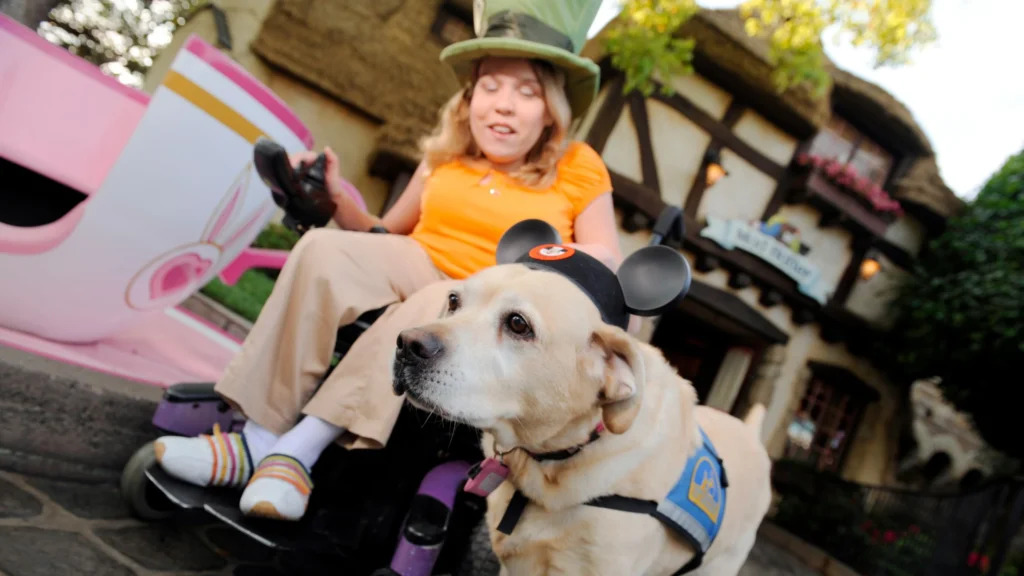Do Hotels Have to Accommodate Service Dogs? Traveling with a disability often requires careful planning, especially when it comes to accommodations. Many people wonder if hotels are legally required to allow service dogs. The short answer is yes: in most cases, hotels must allow service dogs under federal law. However, there are important rules and limitations that both hotel operators and guests should understand.
Legal Framework: The Americans with Disabilities Act (ADA)
In the United States, the Americans with Disabilities Act (ADA) sets the standard for the rights of service animals. According to the ADA:
Hotels are considered public accommodations
This means they must allow guests with disabilities to be accompanied by their service dogs in all areas where access to the public is normally permitted.
Definition of a Service Animal
A service dog is a dog trained to perform specific tasks directly related to a person’s disability. For example, guiding a blind person, alerting a person with hearing loss, pulling a wheelchair, or detecting seizures. Emotional support animals (ESAs), therapy animals, and pets are not considered service animals under the ADA.
Read More: What Disabilities Qualify for a Service Dog?
Hotel Responsibilities
Hotels must follow certain rules when dealing with guests with service dogs:
No additional charges
A hotel cannot charge a pet fee or a cleaning fee for a service dog. However, if the dog causes damage, the hotel may bill the guest for repairs, just as it would any other guest.
Equal Access
Service dogs must be allowed in guest rooms, dining rooms, lobbies, and other common areas. A hotel cannot limit the dog’s use to pet-friendly rooms only.
Limited questions allowed
Staff can only ask two questions:
- Is the dog necessary due to a disability?
- What job or task has the dog been trained to perform?
They cannot require medical documentation, proof of disability, or special identification for the dog.
Behavioral Expectations
Hotels may request a guest to remove a service dog only if the dog is out of control and the handler does not take corrective action, or if the dog is not trained.
Guest Responsibilities
Guests traveling with service dogs also have responsibilities:
Control of the Dog. The service animal must be on a leash, harness, or tied up, unless this interferes with the dog’s duties. In that case, the handler must maintain control using voice or hand signals.
Appropriate Behavior. The dog must not bark excessively, act aggressively, or disturb other guests.
Care and Supervision. Hotels are not responsible for the feeding, walking, or care of the animal.
Emotional Support Animals and Hotels
A key distinction is that emotional support animals (ESS) are not covered by the ADA. Hotels are not required to accept ESS unless they decide to do so as part of their own pet policies. ADA protections apply only to trained service dogs.
International Considerations
Laws vary outside the United States. For example:
In Canada, many provinces have service animal legislation similar to the ADA.
In the European Union, protections are less uniform, and rules often depend on the country or specific establishment.
Travelers are advised to check local regulations before booking accommodations abroad.
Also Read: Can Hotels Deny Service Animals? Know Your Rights Before You Check In
Conclusion
Hotels in the U.S. are required to accept service dogs under the ADA, ensuring that people with disabilities can access the accommodations without obstacles. Service dogs are not considered pets, and hotels cannot impose pet restrictions or fees. At the same time, guests should ensure their dogs are well-behaved and under control.
For travelers with disabilities, this legal protection provides greater freedom and peace of mind when booking hotels. For hotel staff, understanding the rules helps ensure compliance with the law and respectful treatment of all guests.



